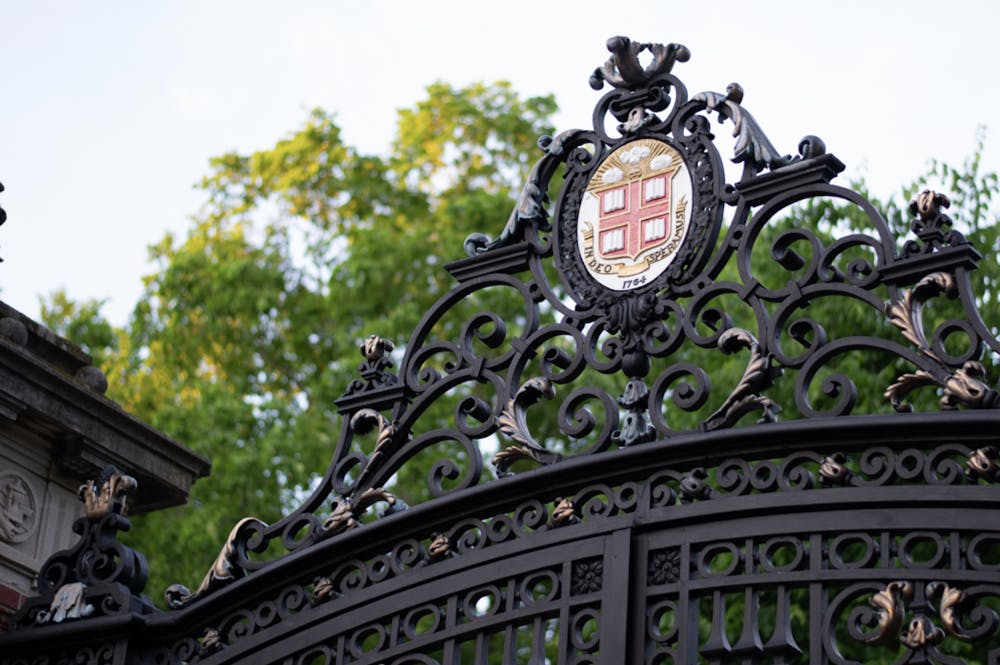Part 1 in a 2-part series “Welcoming Students Back to Brown: A Conversation with Dr. Jha and VP Carey. Part 2 can be found here.
Between monitoring the statewide and national numbers, securing adequate and timely testing and ensuring ample space for quarantining and isolating community members, the decision to reopen Brown’s campus to more students and return to in-person instruction amid a pandemic was multi-layered.
Data was crucial to the planning process, according to Executive Vice President for Planning and Policy Russell Carey ’91. And it will continue to be as the University moves through its phased approach, inviting sophomores, juniors and seniors back to campus and allowing some small, socially-distanced in-person undergraduate classes to begin Oct. 5.
“There’s a very deliberate effort to look at data very, very carefully and on a daily basis,” Carey said.
This approach has impressed Dean of the School of Public Health Ashish Jha, who assumed his role at Brown earlier this month.
Jha, who has advised multiple academic institutions on their reopening plans, said he commended Brown for letting “evidence and data drive these decisions.”
The University's Sept. 10 announcement that it would host more students on campus and in physical classroom spaces came after it scaled back an earlier reopening plan in August. At the time, the University delayed all in-person classes and most students’ return to residence halls until more data on the evolving state of the coronavirus pandemic on campus and in Rhode Island could be assessed.
Carey and Jha spoke with The Herald Sept. 11 about the public health considerations that drove the University’s decision and the future of COVID-19 mitigation on campus. While Jha is not one of the administrators responsible for decisions regarding University reopening, he is a nationally recognized public health expert and scholar.
Throughout the development of its plan, the University consulted the Rhode Island Governor’s Office, the Rhode Island Department of Health and peer state institutions. “They’ve been very supportive of the institution’s reopening by reopening carefully and safely,” Carey said. “We’ve gotten a lot of great feedback from them.”
“One of the fundamental elements of Brown’s plan since we launched it in July has been that it provides options for people,” such as to study from home or return to Providence, added University Spokesperson Brian Clark.
The trends in Rhode Island and the number of people testing positive for COVID-19 on campus “has created the environment and atmosphere that it is relatively safe to bring students back,” Jha said. To date, the University has administered over 18,500 asymptomatic tests, under 15 of which have come back positive, according to the University’s COVID-19 dashboard.
Fine-tuning the testing process was also an important step in deciding to welcome back more students, Carey said, along with determining whether Brown had the space to invite back students who might test positive and need to be isolated.
Currently, the Olney-Margolies Athletic Center is open for scheduled tests from 8 a.m. to 7 p.m. on weekdays and 10 a.m. to 6 p.m. on weekends. A second, smaller testing site is operating in Davol Square. Neither site is accepting walk-ins for testing in order to avoid lines and crowding, he added.
So far, the sites’ hours of operation have been sufficient for testing all those who require it, and the sites’ currently under-utilized capacities can comfortably accommodate an increased number of tests, Carey said. “We don’t know where we’ll be in January in terms of campus population, or in terms of testing … but we’re thinking about the whole year,” he added.
The University also has “a couple hundred quarantine locations, and 60 to 70 isolation rooms,” Carey said. Barbour Hall and Minden Hall have both been dedicated for use as quarantine locations due to the dorms’ private bathrooms. Health Services has also set up an “annex” in Minden to test people who are symptomatic, he added.
Modeling completed with larger numbers of students than the University expects to return to campus “showed a lower need than we have,” meaning the University expects its quarantine capacity to suffice, though Carey said “we will monitor that carefully.”
The number of students in isolation and quarantine will not be made public due to confidentiality concerns.
Positive cases are to be expected, Carey and Jha said, but the University is taking proactive measures to mitigate infection spread. “We do feel that positivity rates that we’re seeing, even though it’s still relatively early days, are low, and that — combined with the testing return time and other factors as well — really gave the confidence to move ahead,” Carey said.
Students returning to campus must sign a commitment form listing the University’s expectations for student behavior. If students violated these commitments, which are meant to prevent infection spreading activities, there could be more expedited and in some instances “more severe consequences than in a non-pandemic world,” Carey said.
Instances where disciplinary action is needed are likely, but the University is “not approaching this from a punitive point of view,” he added. Rather, the University hopes “to promote good and healthy behaviors on campus,” Carey said, by emphasizing “information sharing so that everyone can be safer.”
Jha also noted that there is an argument to be made that Brown’s resources and safety policies will allow for a safer environment on campus than many students would find at home. “I can promise you that most students who are on campus, if they were at home, would not be getting tested twice a week,” he said.
While some members of the public health and Brown communities are nervous about the prospect of schools returning to in-person operations, Jha is “really comfortable” justifying Brown’s decision to his colleagues. “Everything I have been saying over the last five months of what colleges and universities need to do … Brown is doing those things,” he said.

ADVERTISEMENT




